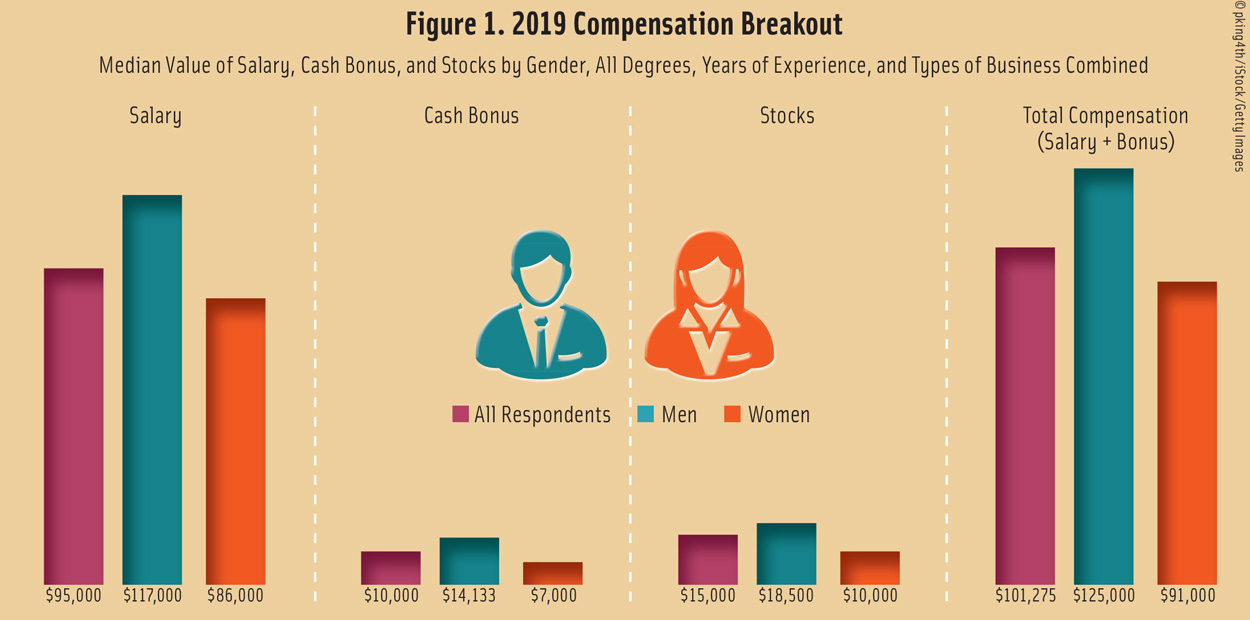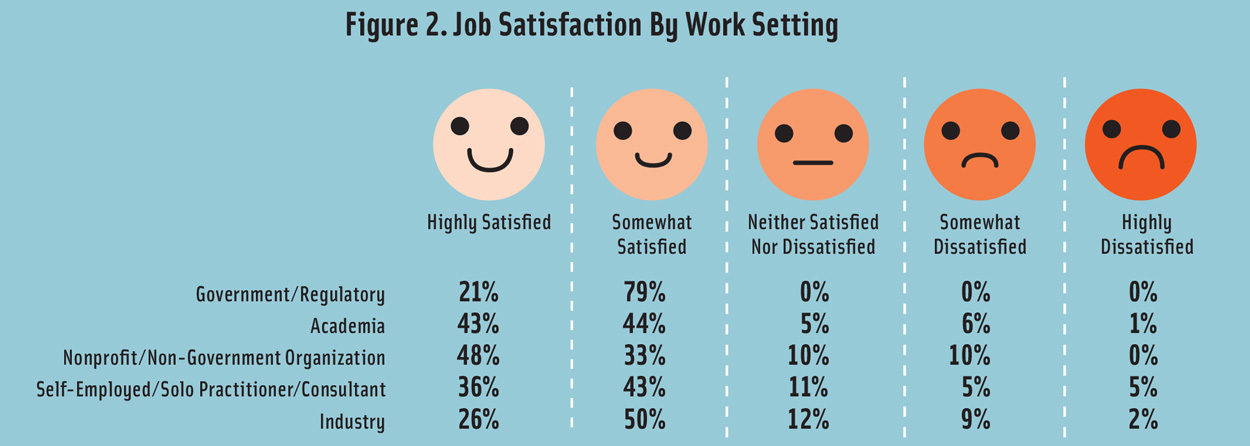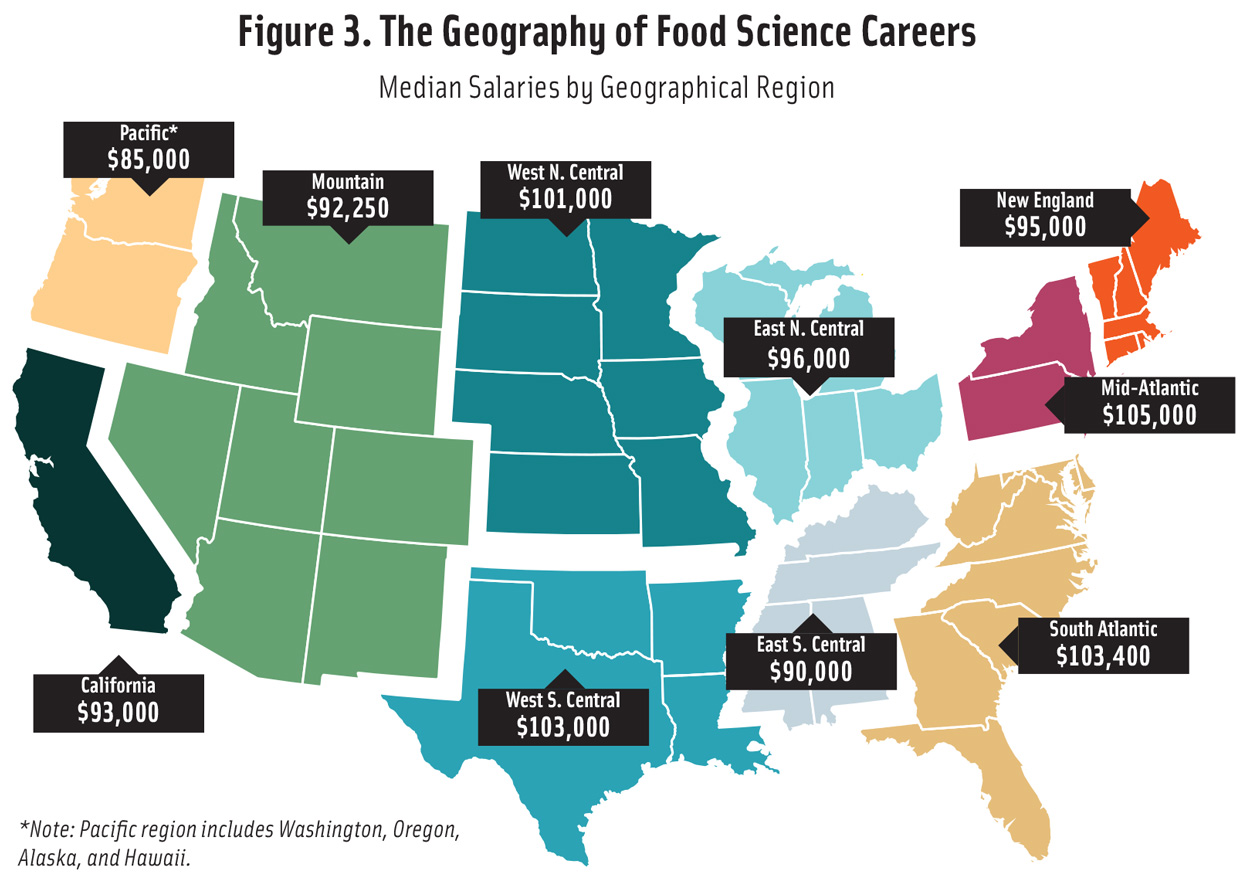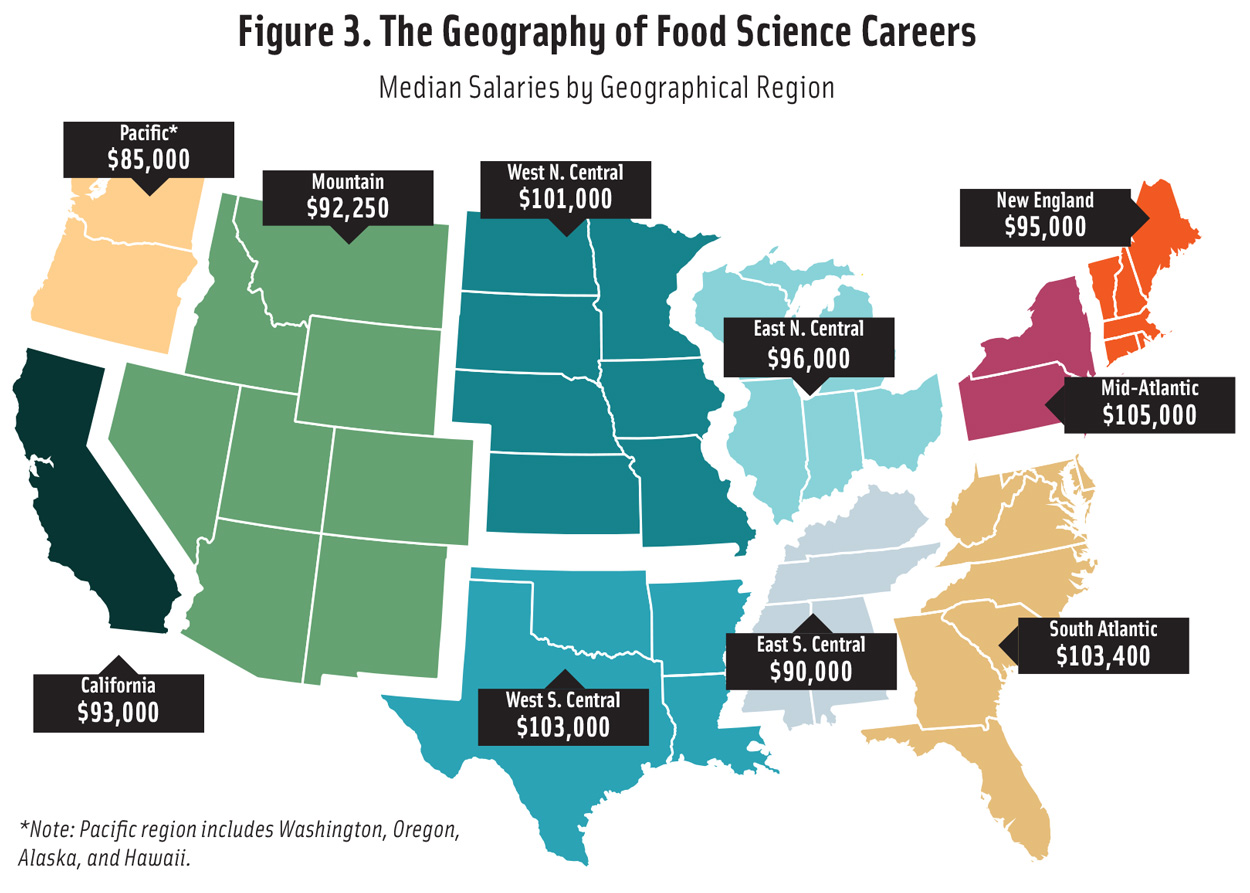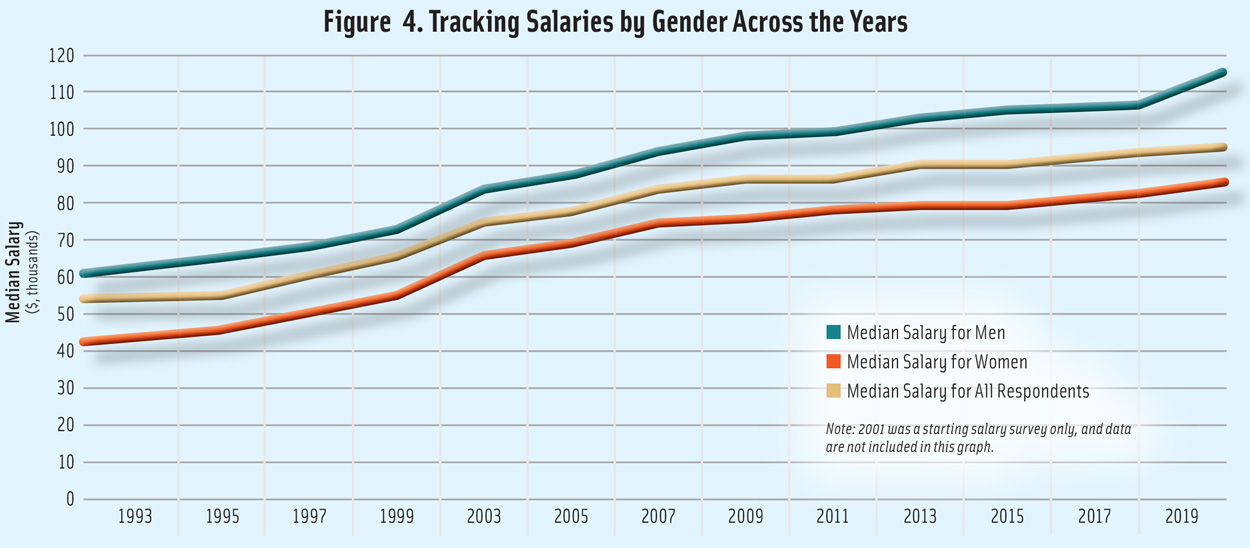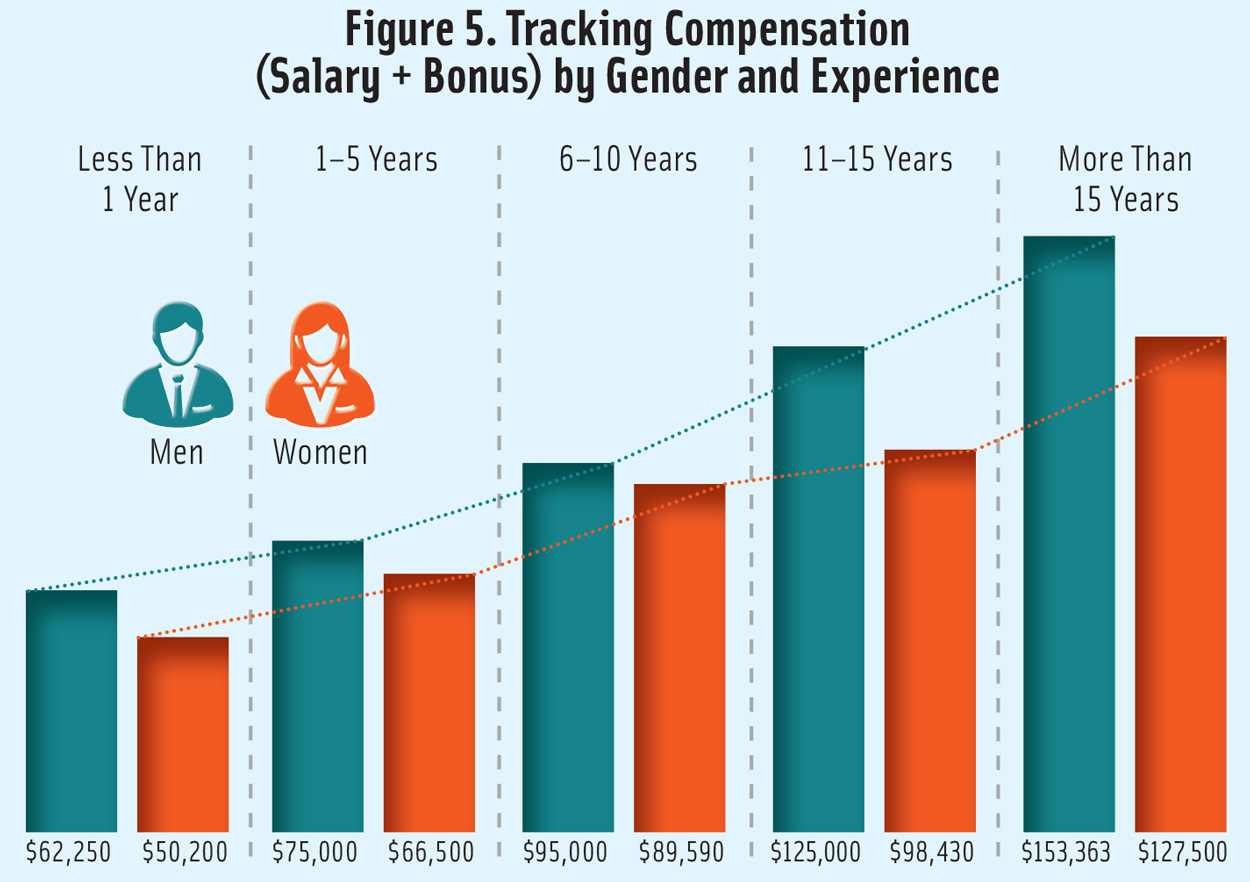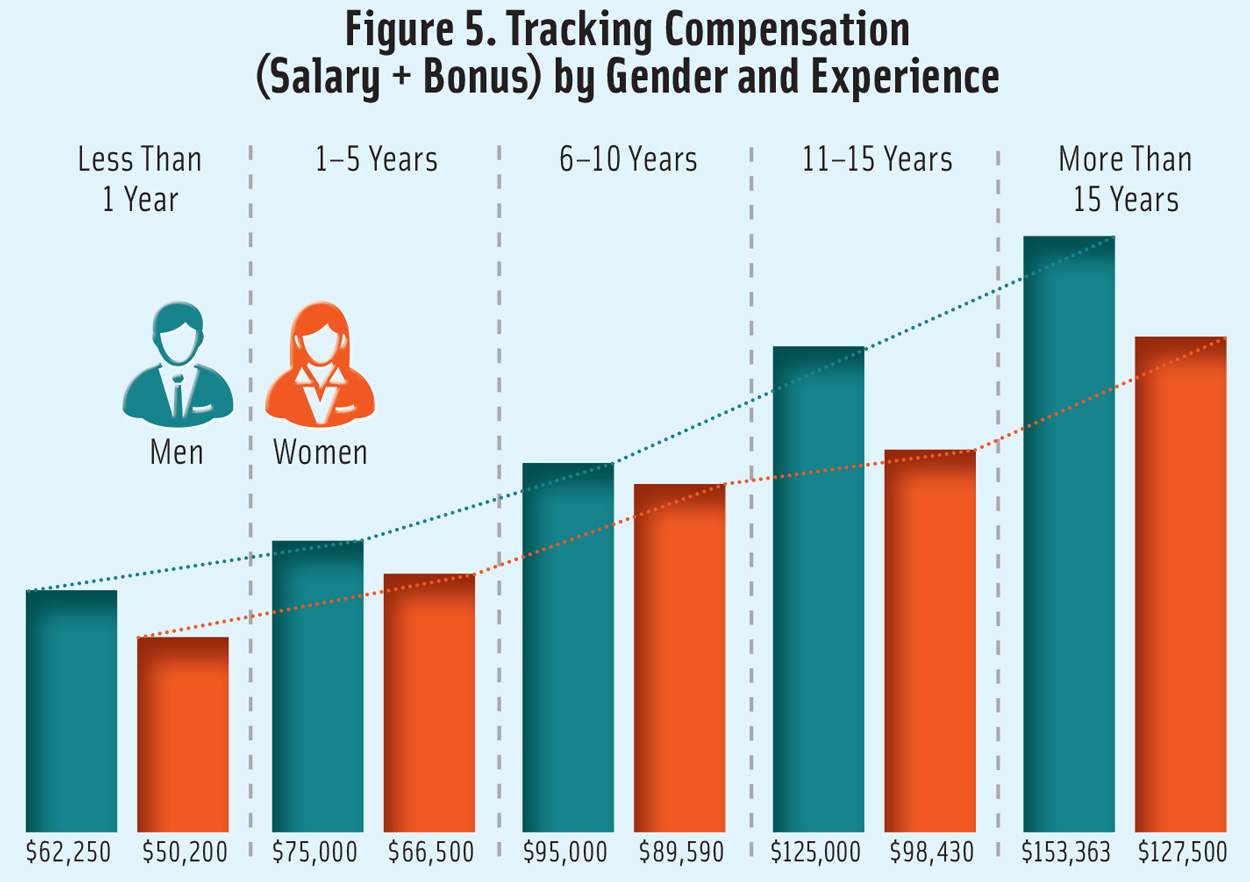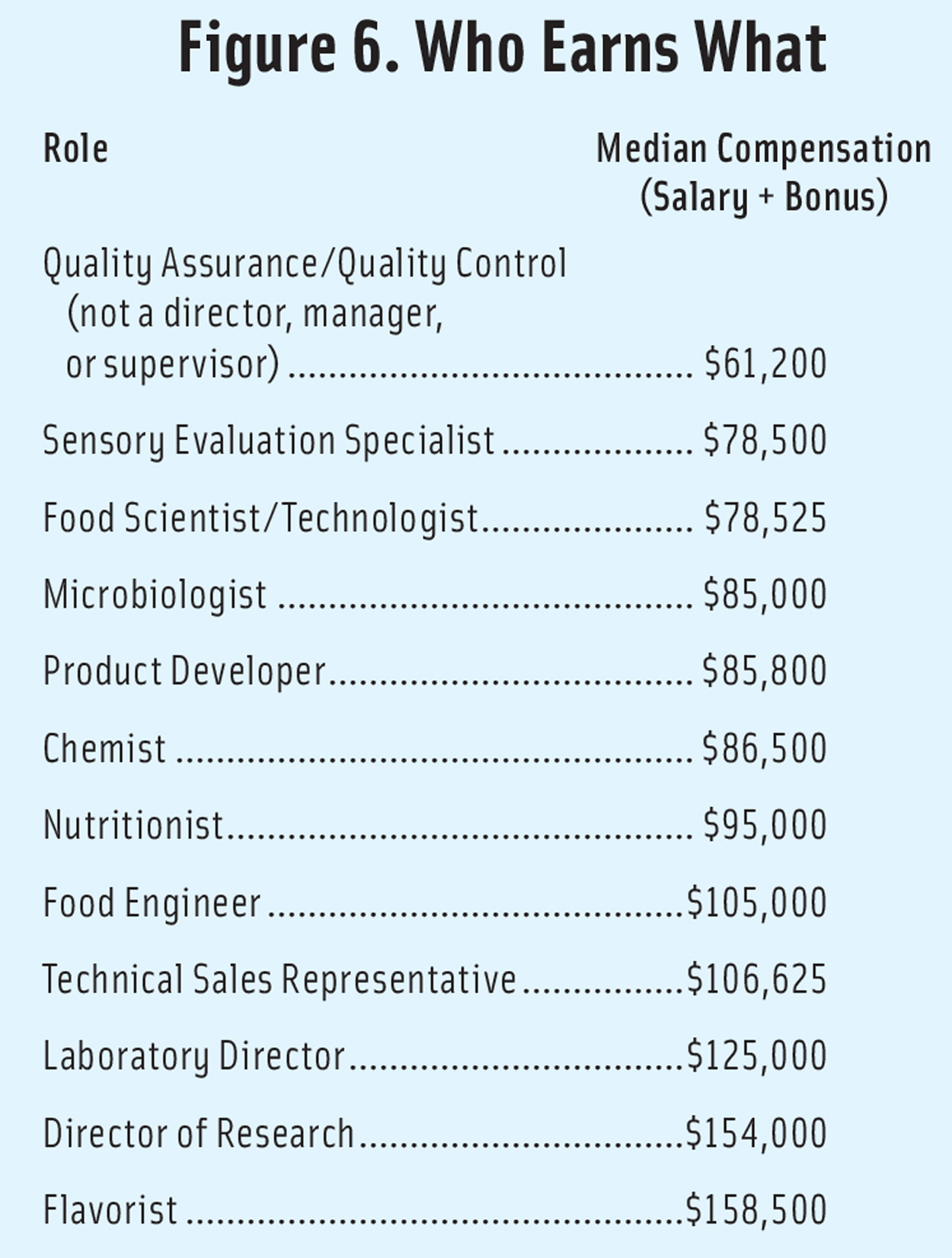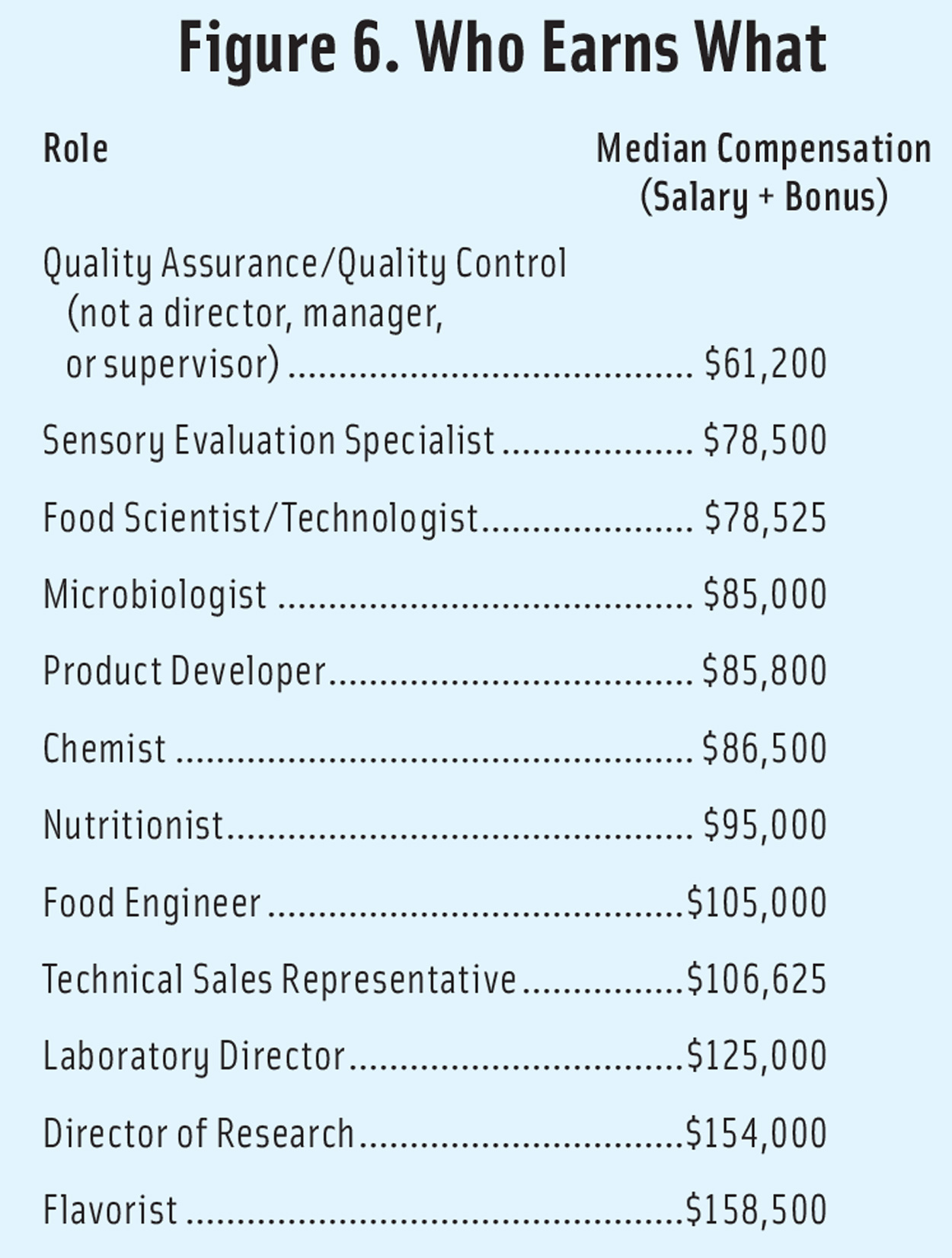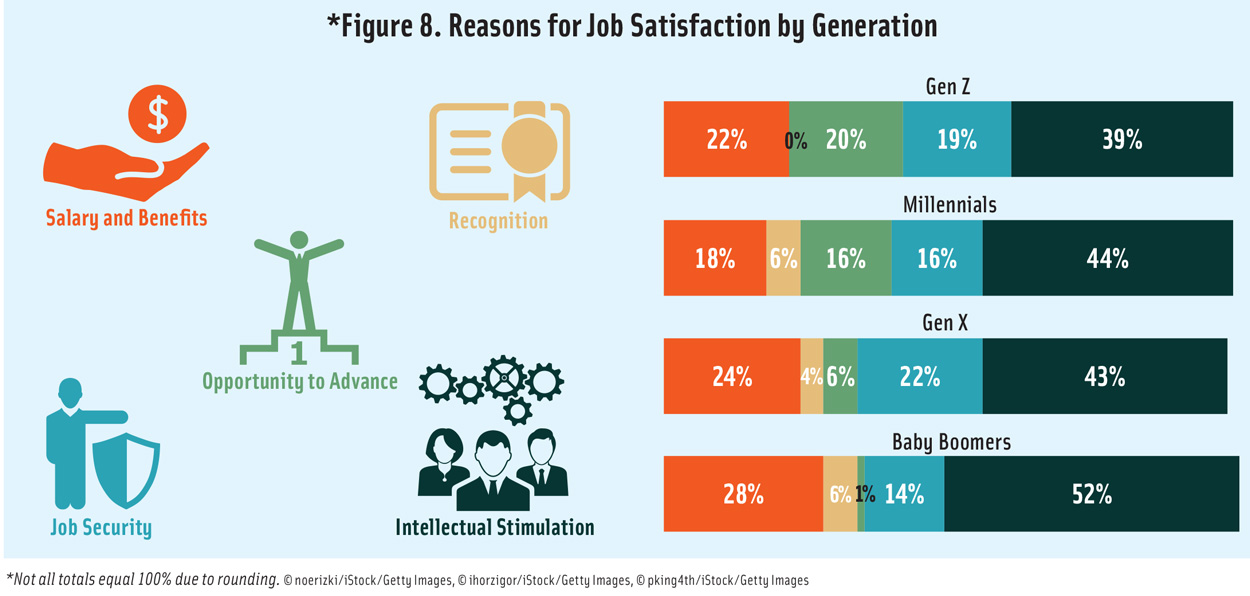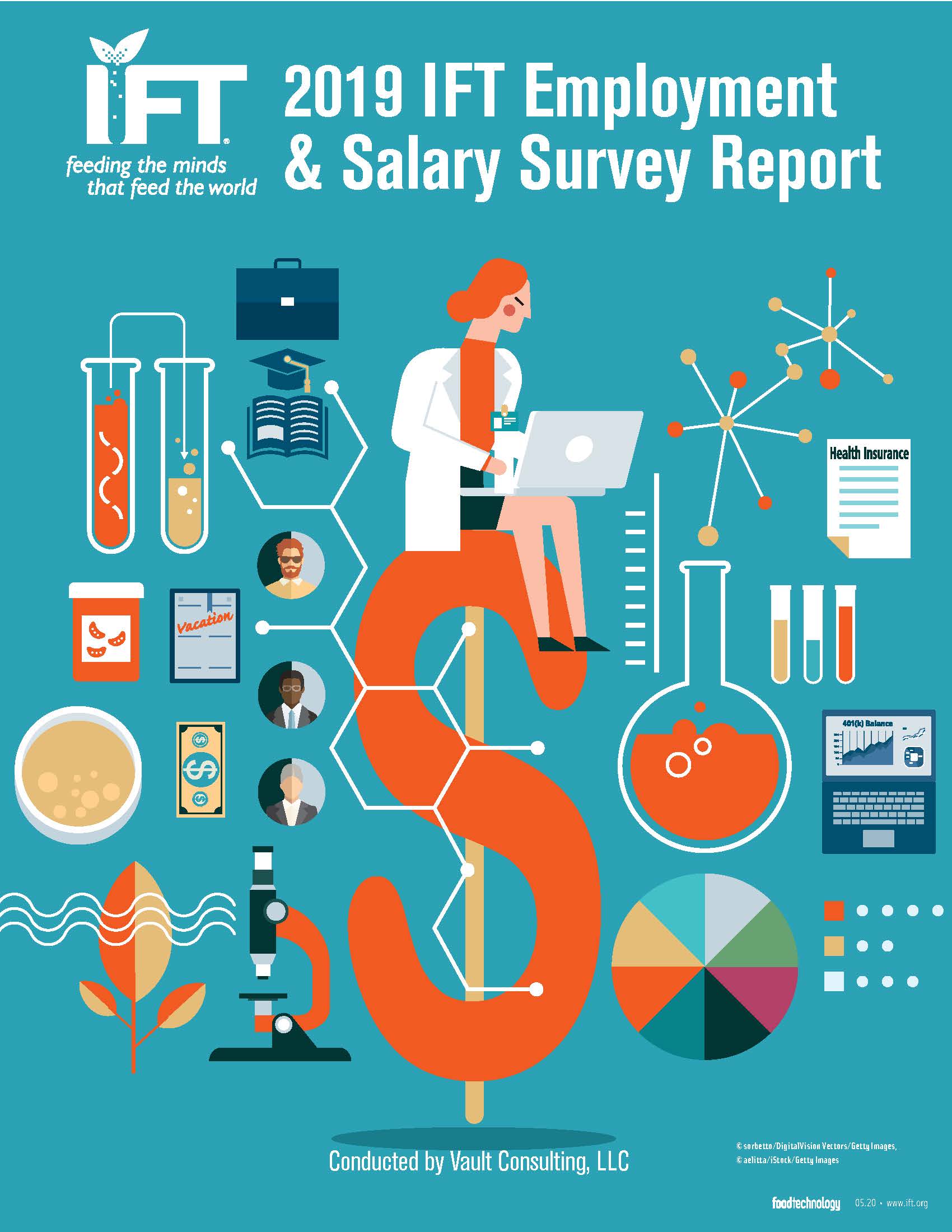
Positive Trends for Science of Food Salaries
The 2019 IFT Employment and Salary Survey shows wage growth and high levels of job satisfaction across all generations in the workplace.
Article Content
Food science remains a career in high demand, with rising salaries and substantial job satisfaction, according to the results of the latest Institute of Food Technologists’ Employment and Salary Survey.
The findings show ongoing progress on the compensation side, with median salary up 3.2% between 2017 and 2019. They also show impacts by gender, generation, company size, region, and other factors.
The survey was conducted in January of this year and was based on year-end 2019 data. As a result, the information covers a period before the coronavirus crisis upended global business. The findings reflect the strength of the economy over the past couple of years.
Industry experts say the results underscore the resiliency of the food science profession at a time when it is adapting to a shifting landscape of new product trends, changing needs of employees, and emergence of new roles in high demand.
“The last couple of years have been the busiest ever for us,” says Tim Oliver, recruiter/senior partner, OSI. “The economy has been cooking. A lot of baby boomers are starting to retire, and there aren’t enough technical professionals to fill positions.”
Moira McGrath, president, OPUS International, says food scientist demand has been fueled by the realities of the new candidate pipeline. “There’s always a real shortage of food science students coming out of universities,” she says.
The findings show a rise in median salary from $92,000 in 2017 to $95,000 (Figure 1). Median total compensation (salary + bonus) increased based on size of company, reaching $112,000 for the largest organizations, those with 1,000 or more employees. It also grew by experience level, starting at $69,340 for those with one to five years of experience, and reaching $141,000 for those with more than 15 years of experience.
The survey found that job satisfaction is driven by a range of factors. One of these is type of work setting. Nearly 48% of employees working in nonprofit/non-government organizations and 43% of those in academia report being highly satisfied, versus only 21% of those working in government/regulatory roles (Figure 2).
Digging Deeper Into Compensation
While salaries rose, the picture changed somewhat when adjusting for inflation. The median income actually decreased over the two-year period when reflecting salaries in 2017 dollars. This indicates that median increases may not necessarily be large enough to overcome impacts of inflation. Experts point to some factors that could be at play. (See Figure 3 for a breakout of median salaries by geographic location.)
Laurie Hyllberg, vice president, Kinsa Group, says the level of increases indicates employees are tending to stay with current employers rather than making switches that might lead to bigger salary bumps.
Scott Wellington, president, Wellington Executive Search, notes that candidates may be avoiding moves to higher-demand areas of the country that offer increased compensation.
Women accounted for 59% of survey respondents, up from 57% two years ago, but while their presence in the profession is growing, their salaries still significantly lag behind those of male counterparts. At $86,000, the median salary for female survey respondents was just 73.5% of men’s median salary of $117,000. (For a comparison of men’s and women’s salaries over the course of the years the salary survey has been conducted, see Figure 4. Figure 5 tracks 2019 compensation by gender and experience.)
Some experts say women could help their cause through more job switching and career risk-taking, which could boost advancement and salaries.
“Women in leadership positions need to continue to advocate for other women in leadership positions to receive comparable pay with men,” Hyllberg says. “And women need to raise their hands for the next job and have their information out there to be found by recruiters. They need to take risks, either internally with cross-functional roles, or to change jobs externally to increase salaries a bit faster.”
Examining the Latest Benefit Trends
While compensation is a crucial factor, it’s by no means the only consideration for job candidates. Benefits are among the important drivers in choice of jobs.
The survey found, however, that benefits have little impact on job satisfaction, which may reflect the uniformity in company offerings.
“It’s pretty universal across companies,” Wellington says. “All companies tend to offer some kind of retirement, whether 401(k) or pension.”
McGrath says benefits are fairly consistent across the board, and “medical benefits and relocation expenses are among those my candidates are very interested in.”
Candidates need to be realistic about vacation benefits expectations, basing this on years of experience, the experts say. “Candidates need to be somewhat flexible,” Wellington observes. “If you want six weeks’ vacation, it may be better to stay where you are.”
Understanding Culture and Flexibility
Beyond traditional offerings, “the more employers can add other benefits, such as flexible work schedules, the better,” says Oliver.
However, there are limits to flexibility, especially when it comes to working off site.
“Food scientists have to be on site,” says Wellington. “They are working in a lab and being around other people. They are trying out and testing products. You can’t do that from home.”
However, there may be creative ways to adjust for the difficulty in working from home. “Because the work-from-home model is not possible for traditional food scientists, other things become more important,” says Hyllberg. “These are things like company culture, paid time off, and the teams you’re working with. If a company has a way to offer flexibility, it should do this. Maybe it’s working four 10-hour days or Friday afternoons off.”
Eyeing Food Science Roles in Demand
Demand for food scientists is fueled partly by new food trends, the experts say.
“Hot areas now include vegetable-based proteins,” according to Wellington. “If you have experience with that, you can go anywhere.”
Hyllberg cites growing demand in the beverage category, especially for new product introductions. Other growth areas she mentions are clean label and natural products. “Overall regulatory knowledge also is important in today’s environment,” she notes.
The IFT data showed that flavorist is one of the most highly compensated specialties, a fact that Hyllberg says likely ties into consumer trends.
“Certified flavorists are in high demand,” she says. “There aren’t enough of them. Given all the interesting products in beverage, natural ingredients, and clean label, if you have knowledge of flavor in those areas, it’s an exciting time to be you.”
Meanwhile, over the past two or three years, “quality assurance and food safety professionals are more in demand than ever,” says Oliver. “This coincides with a time of more recalls and sanitation issues.”
Specialization is a plus for any job candidate, emphasizes Wellington. “You get a higher salary if you’re specialized in anything,” he points out. (For a look at median compensation for some specific roles within the science of food, see Figure 6.)
Latest News

Professional Fulfillment After Office Hours
IFT President Sean Leighton and several IFT members reflect on the value of volunteering.

Can Food Science and Technology Transform the Food System?
IFT President Sean Leighton reflects on the value of collaboration within the science of food discipline and highlights the value IFT FIRST will offer in this area.

The Transformative Power of Positivity
Columnist Kantha Shelke makes the case for adopting an appreciative inquiry approach to the science of food.


